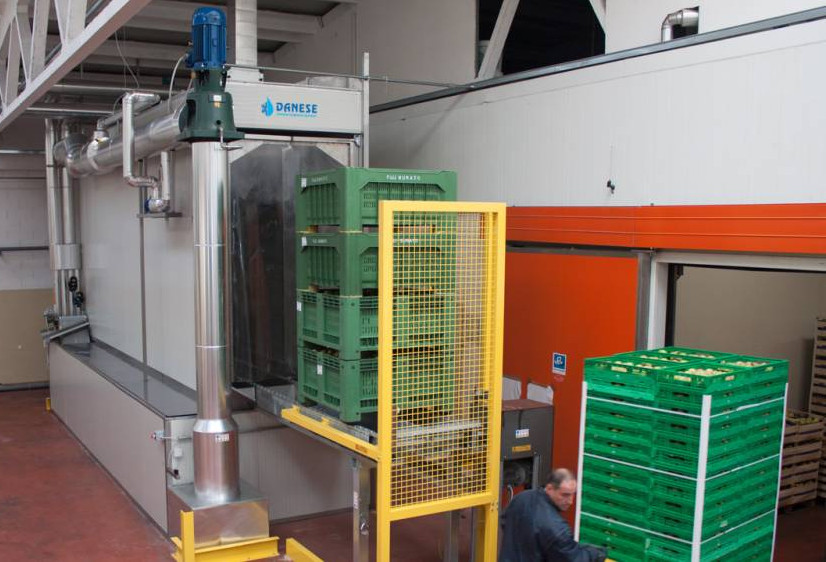When a procurement manager reviews a list of frozen fruit — cherries, strawberries, blueberries, raspberries, or blackberries — they are not just selecting ingredients but making strategic decisions that impact costs, supply stability, regulatory compliance, and commercial success.
Less experienced buyers tend to focus exclusively on unit price. But those who have been operating in the agri-food sector for some time know that the real challenges lie elsewhere:
If the balance between sweetness and acidity does not match market expectations, consumers may reject the finished product.
If the supply does not guarantee consistency between batches, formulations become unstable and the risk of withdrawal increases.
The organoleptic profile matters
Without a transparent quality system, even a single error can generate heavy regulatory costs.
For this reason, understanding the organoleptic profile of fruit — in particular the ratio between Brix (sweetness) and pH (acidity) — is a priority not only for R&D teams but also for procurement managers.
Sweetness and acidity compared: 5 fruits, 5 sensory profiles
| Fruit | Brix (sweetness) | pH (acidity) | Flavor profile | Typical applications |
|---|
| Cherry | 12–16 | 3.2–4.0 | Sweet with light acidity | Retail, ice cream, bakery fillings (focus USA) |
| Strawberry | 7–10 | 3.0–3.9 | Sweet–sour balance | Beverages, jams, bakery |
| Blueberry | 9–14 | 3.1–3.5 | Sweet and delicate | Kids’ snacks, cereals, dairy |
| Raspberry | 5–8 | 2.9–3.4 | Aromatic and vibrant | Yogurt, purées, functional drinks |
| Blackberry | 6–9 | 3.0–3.5 | Distinctly tart, layered flavor | Premium desserts, juices, sauces (focus Europe) |
Case study and B2B applications
Case study: a European company wanted to launch a low-sugar strawberry yogurt. After comparative tests on strawberry samples from four countries, the product from Northeast China was chosen: perfect for reducing added sugar while still matching European consumers’ sensory preferences.
Sweet fruits (cherries, blueberries): ideal for bakeries and children’s products. Natural sweetness helps reduce added sugar, in line with health trends.
Tart fruits (raspberries, blackberries): perfect for dairy and beverages. Acidity contrasts with sweet or creamy bases, adding depth of flavor.
Balanced fruits (strawberries): the wildcard of formulations. Versatile and universal, suitable for retail, foodservice, and beverages.
Compliance and risk: the role of transparent quality
In B2B, the real enemy is not price but the hidden costs of non-compliance. Here are the solutions offered by a reliable supplier:
Full traceability: each batch is linked to a verifiable origin and cultivation documentation.
Rigorous testing: analysis for pesticides, microbial load, and heavy metals. Every shipment is accompanied by a Certificate of Analysis (COA).
International certifications: BRCGS AA, IFS, ISO 22000, eliminating regulatory risk.
Case study: a U.S. client feared pesticide residues in blueberries. Independent lab tests provided before shipment allowed them to pass FDA checks without issue.
Stable supply and strategic partnership
Beyond fruit, buyers look for reliability. The foundations of a solid and lasting partnership:
Guaranteed production: owned facility with an annual capacity of 30,000 tons. No risk of stock-outs.
Multi-country sourcing: production sites in China and Eastern Europe to mitigate climate risk.
Product development support: consultancy on formulations and customized sweet–sour blends for new launches.
Digitization for efficient global logistics
International sourcing can be complex — but it doesn’t have to be:
Digital access to specifications, COAs, and analytical reports.
Online database with sweetness–acidity data and category pairings.
Real-time monitoring of the cold chain, enabling active traceability.
The truth about sweet–sour balance in frozen fruit
Why is sweetness/acidity so important in frozen fruit?
Because it influences taste, formulation costs, and market acceptance. A wrong mix can lead to unbalanced products or excessive costs for sweeteners.
Which fruits are best suited for bakery or beverages?
Bakery and snacks: cherries and blueberries (natural sweetness).
Beverages and dairy: blackberries and raspberries (vibrant acidity).
Strawberries: universal and versatile.
How to avoid compliance issues in international sourcing?
By working with suppliers that offer full traceability, COAs for every batch, and international certifications.
How to ensure stable supply in an uncertain climate context?
Through a multi-sourcing strategy and large-scale industrial facilities.
Can I request customized blends?
Yes, qualified suppliers offer tailor-made mixes to adapt to regional tastes and support your R&D.
Behind every fruit, a strategic decision
For consumers, sweet or sour flavor is a matter of taste. For buyers, it’s a matter of strategy: formulations, market, compliance, and logistics.
With an owned facility, global certifications, and an integrated digital system, a qualified supplier can be much more than just a vendor: a partner to reduce risks, drive growth, and simplify procurement.
In the global agri-food sector, choosing the right balance between sweetness and acidity is not just a matter of palate — it is a visionary choice.
Source: xmsdfood.com
Image source: Artform
Italian Berry - All rights reserved










